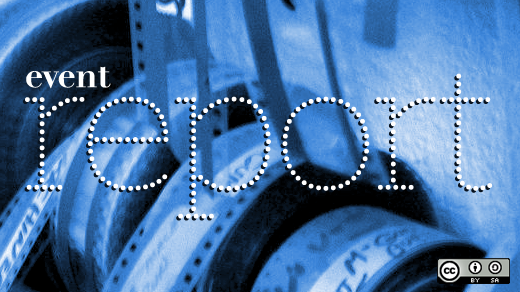I got bitten at camp this weekend, but indifference would have been the only relevant repellant and thankfully, I'm allergic to that. Here's what I learned as a first-time camper.
Transparency Camp is not for the faint of heart. It requires you to dig in deep.
If you are a tech expert, like Northeast Ohio's own Jeff Schuler, you look for how to apply everything you know to figuring out ways to free data.
If you are a journalist, like the AP's Martha Mendoza, you tell stories about the failures, successes and struggles to free data - data that comes from the very public seeking to see it, use it and live better because of the stories it tells.
If you are data person, like Marc Headd, the Chief Data Officer for the City of Philadelphia, you share the challenges from all fronts, all the time, while also exploring how to meet a mission of service provision, anchored in numbers generated by us.
If you are an on-the-ground community organizer, like Tracy Viselli of ACTAlexandria, you press the tech and data folks to make their work immediate, applicable and impactful - otherwise why bother.
And, if you're like me, a public engagement proponent with an eye toward the convergence of all of the above, you absorb everything you hear, ask a lot of questions and don't leave without an action plan for what can be done with all the knowledge, experience and skill around government transparency you've just witnessed.
So what's the plan? I have lots of plans—always! But for starters:
Check out the Twitter feed via the #tcamp13 hashtag. Lots of great tweets there with many links. If you cross that with my @jillmz, you can see what I was experiencing.
Want to see what was discussed at nearly every single session? Read the notes as people recorded them during the sessions on a very cool real-time tool on the camp website. Just click on a session title, go to the webpage for that session and below the session description, you will see a content entry screen that will have notes in it if someone took them (and many sessions did have someone doing this for them).
Here's a recap of just a few of the tools for the public and other data-related projects that I learned about and that deserve test-drives.
Public Markup: a tool from the Sunlight Foundation that lets you read and comment on not-yet-introduced or pending legislation. Wouldn't this be great in the Ohio statehouse, since we know how much legislation gets crafted long before we usually ever see it, and we don't always even know who has written it.
Small Contracts, Big Ideas: this is Philadelphia's vendor-friendly portal for potential vendors of any size to be sure they know what's going on and when. Isn't this the way it should be between government and local business?
BudgIT: The experience of Nigeria and open data is incredible and this tool is a great example of the work they're accomplishing. By providing highly readable infographics and data, the project seeks no less than to, "...redefine participatory governance." And who can argue with their guiding premise that, "Equality and open access to governance is entrenched in democracy and its institutions and as such, budgetary information as a vital asset needs to be understandable and accessible to all Nigerians."
Critical Exposure: This effort focuses on high school-aged citizens. It has used data to drive the journalism pursued by the students who go out into the real world and find the stories otherwise revealed by numbers but told through life.
As with many gatherings, the hallways and lunch lines and happy hours also offer unique opportunities to learn about what's going on in the spheres that are colliding. The Flickr pool group is pretty sweet for showing how some of that looked.
While I sometimes lament how I wish many of these tools were in use now, here, I get excited by the challenges we face because they're not. To that end, I'm going to attend one day of the Hack NEO event in Akron, June 1 and 2. And I'd urge anyone else interested in this kind of convergence for the public good to consider attending too. I don't know what I will be able to contribute, I hope something, but I know I'm going to learn and bring it back here with the goal of again enriching public engagement.
Originally posted on The Civic Commons blog. Reposted under Creative Commons.






Comments are closed.